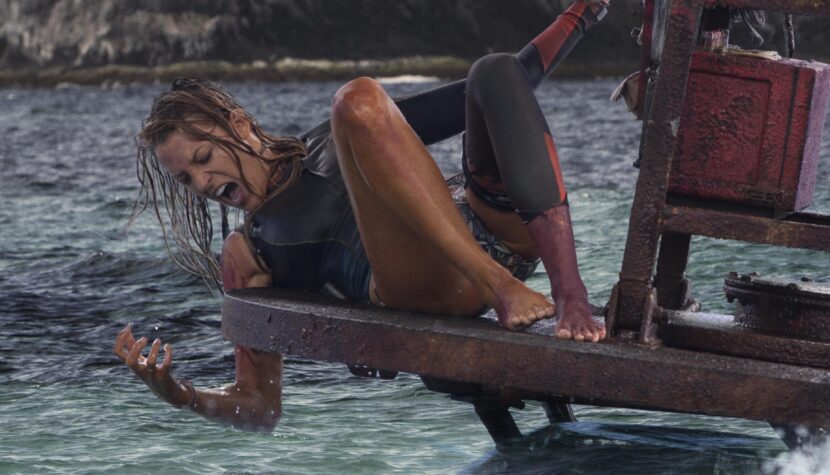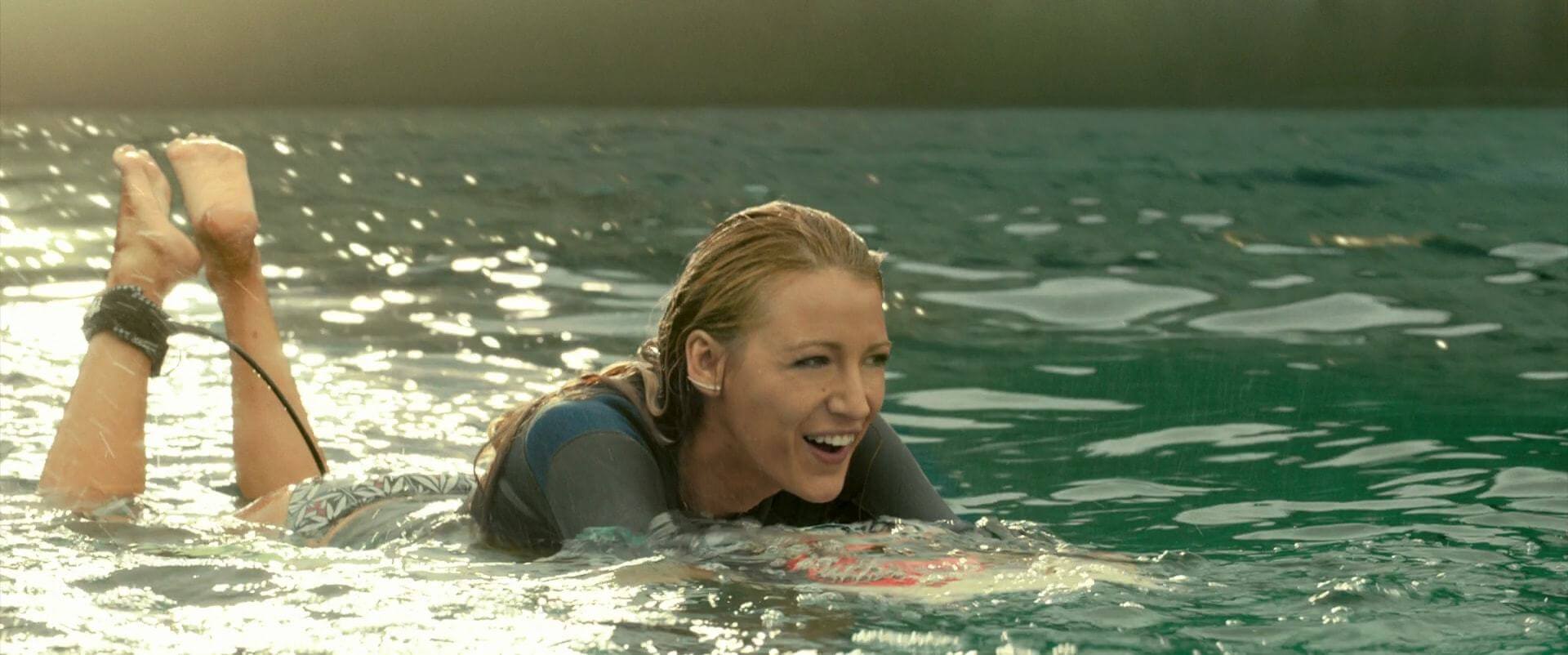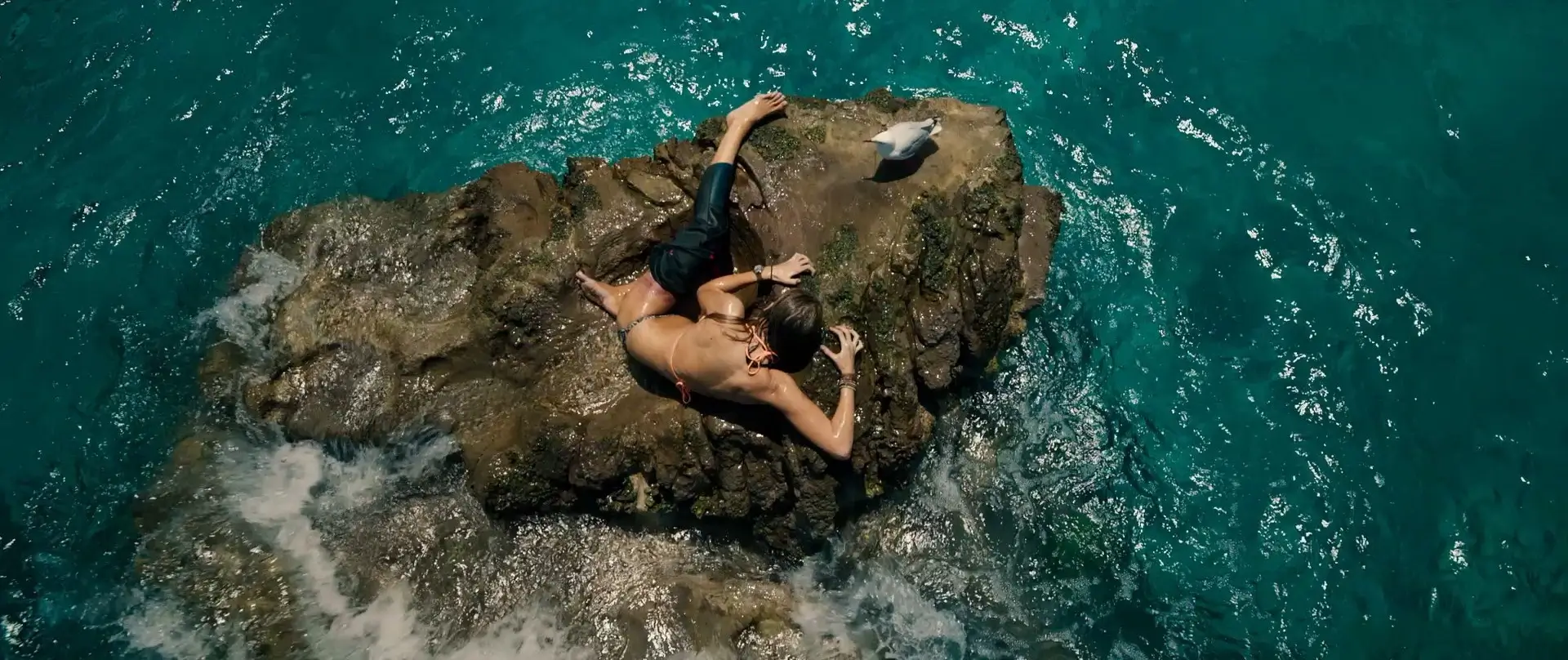THE SHALLOWS. A thriller whose strength does not lie in the script

It cannot be denied that sharks are very grateful movie monsters. Born predators, inherently evil to the core, with a set of teeth as sharp as steel, without complicated motivations to kill, except for the sheer thirst for blood. Hollywood occasionally remembers them, serving viewers a dose of solid emotions and often exceptionally macabre images.
At the same time, every subsequent shark-centric film reinforces our belief that the best work in this genre has already been created; it’s called Jaws, and so far, no one has come close to the directorial mastery of Steven Spielberg. The thriller The Shallows offers a familiar scenario of an uneven battle between a lone hero and the unrestrained appetite of a great white shark, attempting to give the whole thing a spectacular, if not showy, presentation.
Twenty-five-year-old Nancy travels to Mexico in search of a beach her mother found when she was pregnant with her. The girl is only interested in surfing, though behind carefree fun hides grief over her recent loss and the decision to abandon medical studies. The beach seems like paradise, practically deserted (except for two young surfers), hidden from civilization, which soon turns against the protagonist. Just before the end of the day, Nancy is attacked by a shark, forcing her to seek shelter on a small rocky mound, 183 meters from the shore. The situation seems hopeless – the girl has no way to call for help, blood seeps from the shark-inflicted wound, and the fight with the predator is doomed to failure. But Nancy has no intention of giving up and facing death.

The story written by Anthony Jaswinskiego is woven with familiar motifs and solutions – at the beginning of the film, we hear that the heroine should not run away from her problems, and placing an exceptionally bloodthirsty fish in her path forces her into a direct confrontation, without the possibility of escape; her medical education is not accidental (and very helpful), and every tiny thing within Nancy’s reach is used, often in an unexpectedly clever way (nice earrings, by the way). Ultimately, however, The Shallows represents the type of cinema whose strength lies not necessarily in the script, but primarily in execution. If the director can captivate the viewer with a full-of-clichés plot for an hour and a half, the task can be considered accomplished with flying colors.
But Jaume Collet-Serra, the creator of successful thrillers with Liam Neeson (Unknown, Non-Stop), who has also proven that he can scare (the wonderfully sinister Orphan), directs his new film, placing greater emphasis on visual splendor and the effectiveness of shots than on dramatic tension. Scenes of sudden shark attacks may surprise, and the sight of the main character’s bleeding wound can spoil the appetite, but the Spanish director seems to have too much faith that the situation Nancy finds herself in will defend itself. The tension arises from concern for the brave girl, her incredible predicament, and the ever-present threat in the form of a shark fin protruding from the water; however, this is not enough when Collet-Serra has to stage a simple scene of trying to retrieve a camera-equipped helmet – it looks great but does not evoke much emotion.
Related:
Another time, instead of building tension when the protagonist decides on a reckless swim to a buoy, the director admires underwater shots with jellyfish, seeking inspiration from similar (also in terms of color) poetic moments from Avatar and Life of Pi. He is better at showing the lack of communication between characters, whether resulting from a language barrier or their own unwillingness, misinformation, intentional or accidental, ultimately a certain distance and distrust, towards family and strangers. This influences the hopelessness of the situation Nancy finds herself in but at the same time makes us reflect on the consequences of globalization, creating only the appearance of understanding. This discreet criticism is inevitably abandoned as soon as the protagonist lands on the rock, but when we see a phone again – a communication instrument and a potential source of salvation – ironically, it falls victim to theft.

However, I find it hard to consider Collet-Serra’s film a failure, thanks to Blake Lively playing the lead role. It is easy to go to the cinema convinced that regardless of the quality of the film, the sight of the actress’s tanned body, exposed in every scene, will be a value in itself. It is understandable from this perspective, reducing both Lively and her character to the level of a sexual object – for a good two quarters, the director clearly takes advantage of the body not yet bitten by the shark, emphasizing every protrusion and unevenness. But from the moment the Spaniard’s shark appears, he is more interested in the actress’s face, expressing fear, pain, hope, and determination, which propels her forward. He focuses on her to the extent that he even refrains from showing the shark’s attack on a drunk local; instead, we see the shocked face of the protagonist observing the entire event, unable to help the defenseless man.
In the end, Collet-Serra is more interested in Nancy’s character than her duel with the shark, constantly seeking ways to portray her emotions and thoughts. Lively, on the other hand, can make every situation credible, never exaggerating her character, avoiding the simple image of a tough, sexy girl. Her Nancy is an interesting, well-written character, evident from the first minutes when she apologizes for being American; such a declaration surprises and intrigues, forcing us to reflect on what she says and does, not just how she looks.
When it comes to the ruthless exchange of blows in the finale, bidding farewell to any realism, the director clearly comes alive, reminding himself that he once made the silly but spectacular House of Wax. This time, he does not find the perfect balance between genre requirements, his energetic style, and good character development. However, he does give Blake Lively a chance to showcase her acting skills, which she takes full advantage of. The shark must settle for a less interesting performance in the background this time.





